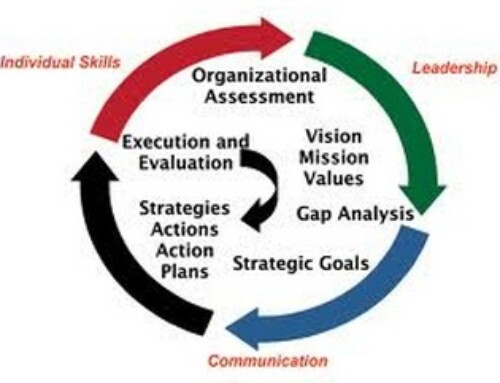 If you want something to remind you how fast things are going in our world today just think back to where things were in San Diego at the NAR Conference in 2009, when RPR was announced for real! Things have moved pretty dramatically since that first sales pitch, not just for RPR, but also for real estate data in general.
If you want something to remind you how fast things are going in our world today just think back to where things were in San Diego at the NAR Conference in 2009, when RPR was announced for real! Things have moved pretty dramatically since that first sales pitch, not just for RPR, but also for real estate data in general.
In that 20 months we have seen RPR grow to have agreements with 274 MLSs and over 500,000 Realtors. RPR reports they are launched in 80 MLSs serving about 224,000 Realtors and recent months have seen some of the big MLSs sign up including MRIS, CRMLS and TREND. We congratulate RPR on their progress.
CoreLogic has seen progress as well in their “MLS data for money” approach through the Partner InfoNet program. They currently have a total of 49 accounts in the Partner InfoNet program, representing 260,000 agents and 860,000 listings.
We are assuming most of our readers by now understand the difference in approaches between the RPR “data for money” approach and the CoreLogic approach, but for clarification:
- RPR obtains data from MLSs and receives money from those that wish to use this data for valuation products, risk reduction, etc. and in return they provide the RPR product suite to participating MLSs as well as tax data from LPS if the MLS wishes. Profits, if and when there are any, are all kept by RPR.
- The CoreLogic model takes data from MLSs under either an exclusive or non-exclusive agreement and uses it for products and services that also provide risk reduction for the end users. They promise they will not use this data in any type of consumer facing product and their agreement is a basic “money for data” deal. Exclusive partners receive higher profit share rates than non-exclusive partner and they also get access to CoreLogic’s Data Co-op product at no cost. CoreLogic provides an option for exclusive partners to switch to non-exclusive during their term if they wish; however they retain the right to use the data for the full term.
What We Thought In 2009
When RPR was announced in 2009, I wrote an article on the topic and I suggested there were a number of questions that all MLSs should ask as they considered this or any other initiative asking for their MLS data. Almost two years have gone by so I thought it would be interesting to look at some of those original questions to see how things have changed and what we know today. In reviewing those first questions some still apply and there are a couple of new questions as well. Here are a few to consider today as you evaluate RPR, CoreLogic or any other “data for money” opportunities for your MLS.
Questions For 2011
What is the real value for the MLSs using the RPR product and CoreLogic service?
- For CoreLogic, the answer is simple. The value for each MLS is the amount of money they receive as an InfoNet partner. This is a straight “money for data” agreement. Beyond that is the value they may receive from the Data Co-op products, if they receive these via an exclusive agreement. The Data Co-op product allows MLSs that participate to share data with any other MLS on the Data Co-op platform. MLSs also obtain a number of other value add products similar to those included with RPR with the Data Co-op suite. In terms of what value agents are realizing from these “value add” products, we aren’t sure yet. At first glance, like the RPR products, these modules appear very valuable. More research needs to be done to thoroughly understand their adoption and value to the industry.
- For RPR the question is not as easily answered since it is not a straight “money for data” product. The real value of RPR will come with adoption and use by agents. Will the agents use the products? Will they find them to be valuable? What will the impact be on their existing products? Will the model change? To date we don’t have enough information to really answer these questions but WAV Group will be monitoring adoption, use, and value in the coming months for both RPR and CoreLogic and will provide updates as we do.2. Has it provided real and compelling value to your members, either in real dollars or software/data tools?
- We don’t believe anyone has enough information on this today but we strongly encourage all MLSs that are using these products to benchmark user value via regular and consistent research. Make benchmarking a regular part of your strategic initiatives. Find out what is valuable and promote it. Find out what isn’t and get rid of it.
Are you comfortable that whatever agreement you have in place has been lived up to? Have there been any surprises?
- We have not heard anything to suggest that either RPR or CoreLogic has not lived up to their promises. What we need to keep in mind, however, is that commitments have only been made for the term of current agreements. Beyond that anything is possible.
Are you comfortable that data being provided to RPR, CoreLogic, or any vendor is being used exactly as promised? How are you confirming this?
- Again, we have not heard anything to suggest data is being misused by either RPR or CoreLogic.
Are the reasons you chose to join or not join RPR or CoreLogic still valid? Be willing to challenge your assumptions as each expiration data approaches. If everything lines up with your strategic objectives, great. If not, make adjustments.
- A key message here is to make sure you are making choices based on your vision, not someone else’s. Are you making decisions based on identified needs in alignment with your strategic plan or have you picked up a “blue light special”? Remember that every product and service you implement has hidden costs and overhead and try to identify and evaluate these costs as part of your decision making process.
Have you considered what the impact will be to your MLS if you discontinue a service or “data for money” agreement in the future?
- The answer to this question is not an easy one. There could be push back from agents and there could be an aggressive pushback from the technology provider. Simply having the opportunity to end a service does not mean the process will be an easy one or that it might not have other negative consequences. Consider best-case and worst-case scenarios during your planning processes.
Do the RPR and CoreLogic business models work in terms of their original financial projections? What are the consequences if they don’t?
- To me this is one of the most important questions that was asked in 2009. I believe the answer is still unknown. We don’t really know how much revenue is going to be realized from the licensing of MLS data to interested parties. What we do know is if the numbers projected by RPR aren’t realized someone has to absorb the costs of the enterprise and that would be the members. We have seen this scenario played out in our industry in the past so it is a question worth asking.
- For CoreLogic you can argue that the risk is low for MLSs. If the model is not successful for CoreLogic the worst that will happen is revenue sharing will not continue beyond the term of the agreement and access to their value add products could be fee based. Even if this happened, which doesn’t appear likely at this point given progress to date, the cost for the Data Co-op product is already known and it is very low.
Conclusions – 2011
In 2009 we recommended that MLSs keep an open mind and be willing to welcome these new technologies and services if the decision is backed by sound research and proper due diligence. We told MLSs to evaluate each product and service as you would any business decision. We think that is still sound advice.
We believe the key now is to understand the real value of these products and services as well as the real cost, both today and long term. Some thoughts to consider as MLSs prepare to renew agreements:
- Ask for longer term commitments on key areas like non-competition.
- Ask to see clear financials for revenue and expenses to understand the potential impact on your members.
- Ask for guarantees that free products today won’t become “fee based” products in the future once your agents have come to rely on them.
- Do the necessary research with your members to determine real versus perceived value of products and services.
- Do an objective review of non-monetary demands any 3rd party product or services adds to your MLS.
- Consider how decisions you make today can have unintended consequences in the future and assess how difficult it will be to stop a service if you need to.
For more information on how your MLS can evaluate the best strategic data course and establish a solid plan managing your MLS data future contact WAV Group at 716-839-4628, or mike@wavgroup.com.




